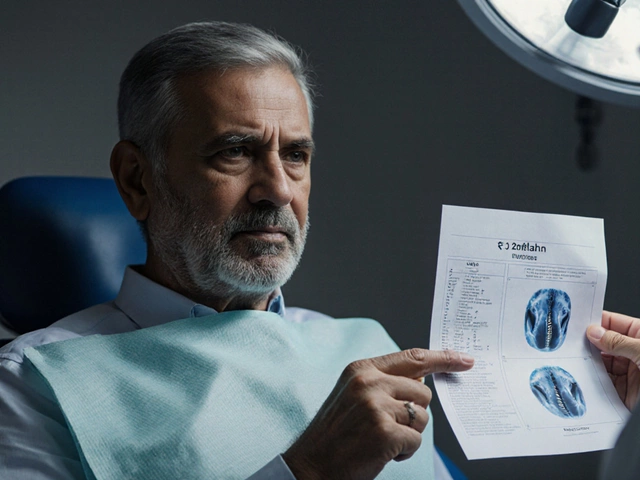Weight Loss Pills – Quick Facts and Safety Tips
If you’ve clicked on a weight loss pill ad, you’re probably wondering if it works or if it could hurt you. The short answer: some pills can help, but many hide risks that aren’t obvious on the label. Let’s break down what’s out there, what to watch for, and how to stay safe.
Common Types of Weight Loss Pills
In India you’ll see three main groups. First are prescription drugs like GLP‑1 agonists (think Ozempic or Wegovy). They lower appetite and have solid clinical data, but they’re pricey and need a doctor’s note. Second are over‑the‑counter diet pills that claim to burn fat or block carbs. These often contain herbal extracts, caffeine, or banned stimulants. Third are “detox” capsules that promise quick drops in weight by flushing out toxins – they sound nice but usually have little science behind them.
Celebrity buzz, like the talk around Kelly Clarkson and Ozempic, pushes many to try GLP‑1 meds without a proper check. While they can be effective, they also carry side effects such as nausea, low blood sugar, or pancreas issues. Always get a doctor’s go‑ahead before starting any prescription weight loss drug.
How to Spot Toxic Ingredients
Many cheap pills hide harmful substances like sibutramine, phenylpropanolamine, or high‑dose ephedra. These can raise heart rate, cause high blood pressure, or even lead to heart attacks. Look for the active ingredient list on the pack – if you see unfamiliar names, search them online or ask a pharmacist.
Herbal doesn’t always mean safe. Some Ayurvedic blends mix ephedra (ma huang) with caffeine, creating a potent stimulant cocktail. If a product promises “instant” results, it’s worth a second look. Regulatory bodies in India have recalled dozens of such products for safety concerns.
Another red flag is a lack of manufacturer details. Reputable brands list a licence number, batch code, and contact info. If the packaging is vague, skip it. Counterfeit pills often mimic real products but contain different, sometimes toxic, chemicals.
When you’re deciding, ask yourself three quick questions: Do I need a prescription? Have I checked the ingredient list for banned substances? Do I have a doctor’s approval? If the answer is no to any, it’s safer to walk away.
Beyond pills, combining a balanced diet, regular walk, and proper sleep still beats any shortcut in the long run. Pills can give a boost, but they’re not a magic fix. Use them only as part of a broader, doctor‑guided plan.
Bottom line: weight loss pills can be helpful, but the market is full of risky options. Do your homework, talk to a healthcare professional, and never ignore warning signs like rapid heartbeat, dizziness, or severe stomach pain. Stay informed, stay safe, and choose wisely.

Do Insurance Plans Cover Weight Loss Medications?
The article explores the complex relationship between insurance coverage and weight loss pills. As questions about the affordability and necessity of weight management solutions rise, understanding insurance policies becomes crucial. It delves into the factors influencing coverage, including specific medications, policy types, and prerequisites required by insurers. The aim is to provide clarity and helpful insights for those considering weight loss medications and their options for insurance reimbursement.




